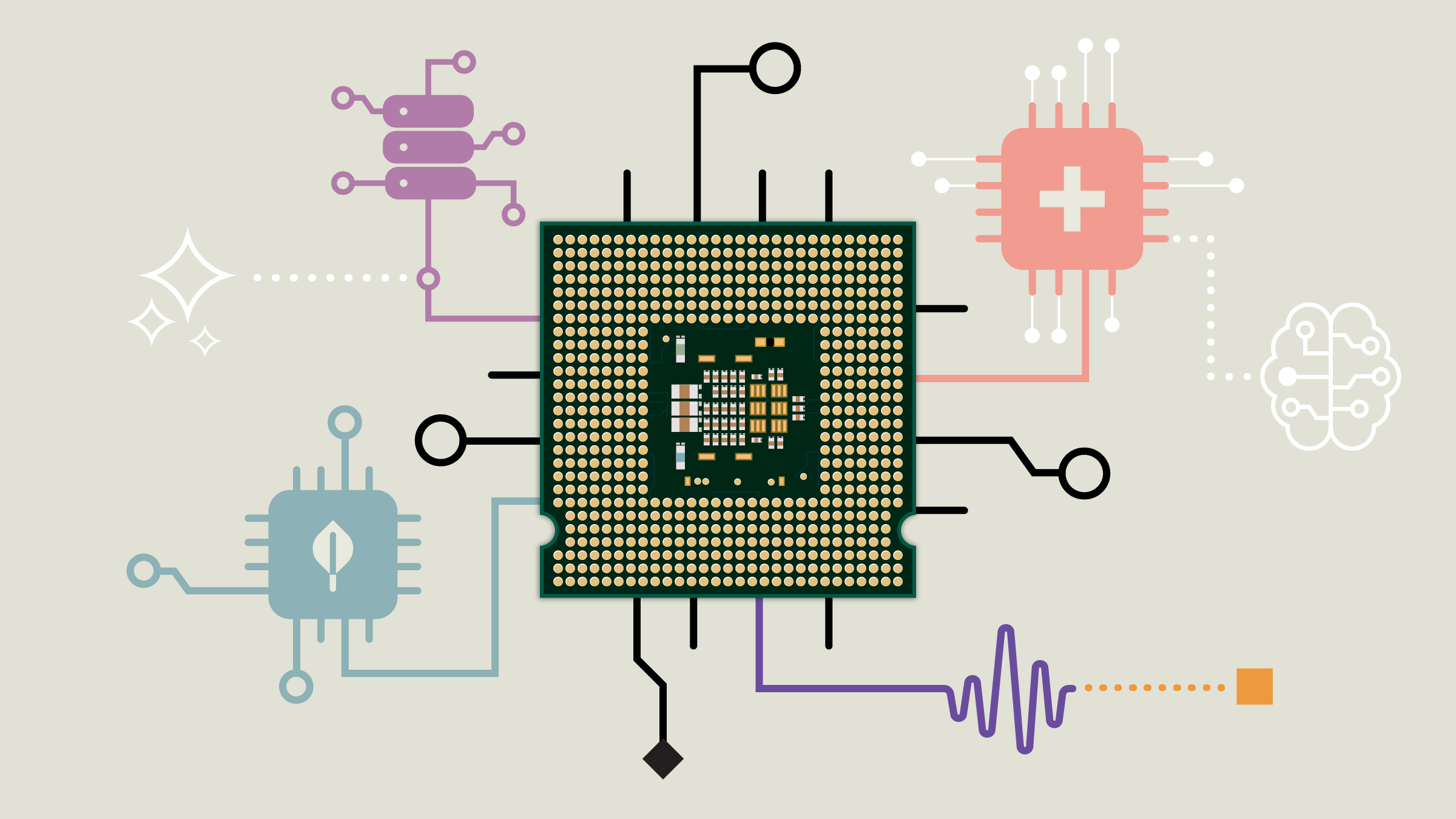Morningstarin teknologiasektorin strategi kertoo toimittajallemme Jeremy Glaserille, millaiset yhtiöt pärjäävät parhaiten ympäristössä, jossa pc-tietokoneiden myynti putoaa jatkuvasti.
Jeremy Glaser: For Morningstar, I am Jeremy Glaser. I am here today with Grady Burkett; he is our tech strategist. We're going to talk about the upcoming earnings season and what he expects from the big tech companies. Grady, thanks for joining me.
Grady Burkett: Thanks for having me, Jeremy.
Glaser: So, let's talk a little bit about some of the big trends, and maybe we'll get into some more ideas later. But one of the big things we saw last quarter was this precipitous decline in PC sales. It's looking like that's not kind of a short-term issue. What are you seeing there, and how is it impacting the industry?
Burkett: Right. So, this is our fifth consecutive decline, the second quarter, in PC unit shipments. So PC unit shipments fell 11% year over year in the second quarter. And so, 76 million units were shipped globally by Gartner Research's estimates. It's interesting though when you look at the way this has affected some of the big suppliers that you would think are tied to this; Microsoft, Intel, Hewlett-Packard, those stock prices actually have done very, very well during the last four or five quarters.
So, I think what it's demonstrating is that a lot of the larger suppliers that can shift their portfolios and strategies are actually making those shifts. So, I think the way we're thinking about it on the technology team is PCs matter a lot, and they will continue to matter. But really a lot of these companies are building device strategies, and so really what we have to think about is what's a company's current portfolio and exposures to PC units in that device form factor and how are companies shifting their portfolios to exist in a device world and thrive in a device-driven world.
Glaser: So who do you think has the potential to do that, and who is going to fall behind?
Burkett: Right. So, when we look at it, I think that the companies that have architecture, intellectual property, very strong portfolios around software, and the underlying chip architectures, those are companies that are still going to do well. So, I think Microsoft and Intel, specifically are two companies that will continue to drive earnings growth, continue to succeed in a device-driven world, and I think that those are companies that investors can continue to view as core holdings over the long run.
Obviously, companies that are tied specifically to mobility are going to be pretty well-positioned. So, some of the names like Apple, Qualcomm, those two companies specifically, should do well in this environment.
And a few other companies that are going to be left behind, I would think about manufacturers that don't own a lot of intellectual property and think about the companies that really can't make big transitions. If I think back in the supply chain, I'd be really careful with the hard-drive manufacturers for instance. They have offsets into the data center. But they have so much of their revenue tied to physical hard drives being shipped with individual devices, and that's kind of changing.
So, I would think about, can the company that I own, can it actually drive strategy and drive direction in this market or is it actually being driven. And that's kind of the way I think about it.
Glaser: So smartphones have been one of the things that have been driving consumers away from PCs. When you look across the smartphone landscape, anything new, anything you're expecting to see this quarter, potentially with BlackBerry 10 now out there and Microsoft continuing a push with Windows phone?
Burkett: We continue to think that the industry structure will primarily be Android with the biggest volumes obviously. So Google with the biggest volumes with its Android devices and then Apple as the second unit leader, but obviously driving the most profit out of this industry. I think when you look going forward into the second half of the year Intel is going to launch its Silvermont architecture, which is a very strong mobile architecture. We think, Intel has a play in tablets going forward first, and then potentially moving up into the smartphone category, but the company will primarily start in tablets.
And we think that Microsoft is actually going to drive unit share over the long run because it has such a strong tie into the enterprise side. The company will be able to pull through even on the consumer side, and we're seeing some benefits in emerging markets. We're seeing Microsoft start to see a little bit of adoption. So, I would watch for that during the next two to four quarters as to how Microsoft evolves.
We think BlackBerry is probably relegated to niche, and we don't see a lot of really positive outcomes for that particular firm in smartphones.
I think this is really interesting though and we're looking at this data kind of in penetration rates and thinking about the installed base. And when you look at the installed base, there are about 3 billion mobile devices out there in use globally. That implies about 0.41 devices for every man, woman and child in the world. But if you look at emerging markets versus developed, in developed markets we have 1.5 devices, smartphones, tablets, PCs for every user and emerging markets we're still at 0.23, 0.24 according to Gartner. So I think that what investors need to really think about is we still have a long penetration ramp in emerging markets for just computing in general, and that will have implications for a lot of firms.
Glaser: Let's switch gears a little bit to enterprise. Oracle just a couple of weeks ago had kind of weak license revenue in that area. Do you think the enterprise market is going to be under pressure, or do you expect to see some decent results this quarter?
Burkett: I think that Oracle's results had some weakness in license. We also saw weakness out of Accenture, which talked a lot about its Software Package Application business; maybe they're seeing a little bit of weakness in that on the consulting side. I think that what we're going to see this week, we're obviously going to see kind of a divergence. So, we're going to see a lot of different kind of categories report. So we'll see the PC supply chain, we'll see Microsoft and Intel. We'll see IBM report and then Google. So, obviously those companies are kind of seeing different growth trajectories right now.
I think that some of what Oracle is going through is firm-specific. They have had a little bit of issue in the sales side, but we've also seen some strategic movements out of that company recognizing that they need to really shift their portfolio more aggressively toward some of these new trends in terms of software-as-a-service. And so, they announced their partnership with Salesforce.com and NetSuite to kind of be able to pull through more of their financial applications and more of their database applications and tie those into some of their partners where you wouldn't see them partner normally with those types of companies.
And then second, they announced a technical partnership with Microsoft where they'll sell offer their database on top of Microsoft Azure and also offer their database and applications on top of Microsoft's hypervisor offerings. And so, I think what Oracle is doing is that it's recognizing that it needs more distribution and more effective distribution. So I think that company will actually be pretty well-positioned over the longer term.
I think when we look out into this quarter and the next couple of quarters, we're still in an environment where IT departments don't seem particularly interested in spending a lot on capital expenditures. They really move it out, unless they see a project that really has strong return on investment or a pretty quick payback period. I think that anything transactional will continue to be kind of sluggish. So I would watch IBM. I think the hardware portfolio will probably see some sluggishness there. And then maybe in their global business services we might see a little bit of pressure.
Glaser: So, if you expect some sluggishness there, what about overall? What are the expectations of the quarter both here at Morningstar and out in the marketplace?
Burkett: I think when we look at it from our perspective at Morningstar we think it's kind of a little bit mixed. So I wouldn't be overly cautious going in this quarter. I think when you balance that against sector valuation--so the sector looks about 7% overvalued to us--this is a time really in our view for investors to really be thoughtful about stock selection.
I think that if you buy a really high-quality company with strong cash flows, a strong competitive position, and you're getting a reasonable valuation right now--and we see a number of companies like that--these are good names to hold right now. But I think in terms of what we'll see this quarter, obviously we're not terribly efficient or proficient at gauging this quarter what's going to happen versus expectations, but I think over the long run expectations are that the sector looks fairly valued which implies about an upper-single-digit total return for investors exposed to the tech sector over time. And then within that we see individual opportunities that are firm-specific.
Glaser: What are some of those opportunities you're seeing now?
Burkett: I think that tying back to some of the bigger themes we're seeing--social, mobile, analytics, and cloud--we see some really high-quality firms exposed to those and shifting their portfolios toward those. And so I think with good strong exposure to those where we've seen some temporary weakness or shifts, Apple; we continue to like Apple. I know we've mentioned it a couple of quarters in a row. But again, when we get back to that mobile-penetration rate and that device-penetration rate. Apple has very strong exposure into the mobile device sector and very strong cash flows, a very strong competitive position, and frankly a cheap stock right now.
And then Qualcomm had some recent average-selling-price questions around its chip business. What will pricing look like? So that stock sold off moderately, so it's trading in 4-star territory right now. Obviously it earns a licensing fee on every smartphone that's sold out globally, and so that's a very, very good business to be in. So those are two names with really positive exposures right now.
[Another name] that I'd point to is Oracle, as we talked about before. They're making very strong shifts. The stock sold off pretty substantially on their quarter. So right now it looks very undervalued, a very entrenched business, trading at about 11% free cash flow yield.
And then finally we like Facebook right now. And so, there has been some questions on how well to monetize the mobile transition, but we think that as it grows user engagement and ties into other websites, we think there is a strong opportunity for Facebook to monetize that growing mobile installed base.
Glaser: Grady, thanks for joining me today.
Burkett: Thanks for having me, Jeremy.
Glaser: For Morningstar, I am Jeremy Glaser.





















